To provide an academic exchange platform for the research and development of trusted artificial intelligence related science and technology, focus on mainstream and hot research directions, track the dynamics and technology of frontier fields, the Trusted Artificial Intelligence Committee of Anhui Province Artificial Intelligence Society and the Artificial Intelligence Logic Committee of China Artificial Intelligence Society successfully held the "First Trusted Artificial Intelligence Symposium" at our university on October 21, 2023.
The conference was chaired by Professor Yang Jing, the director of the Trusted Artificial Intelligence Committee of Anhui Province, and attended by Professor Zhang Weiping from the University of Science and Technology of China, Professor Shi Minjia from Anhui University, Professor Yu Kui from Hefei University of Technology, Professor Tang Yiming from Hefei University of Technology, Professor Yang Shuai from Anhui Agricultural University, Associate Professor Wang Kunxia from Anhui Architecture University, as well as teachers and students related to the research direction of the college.
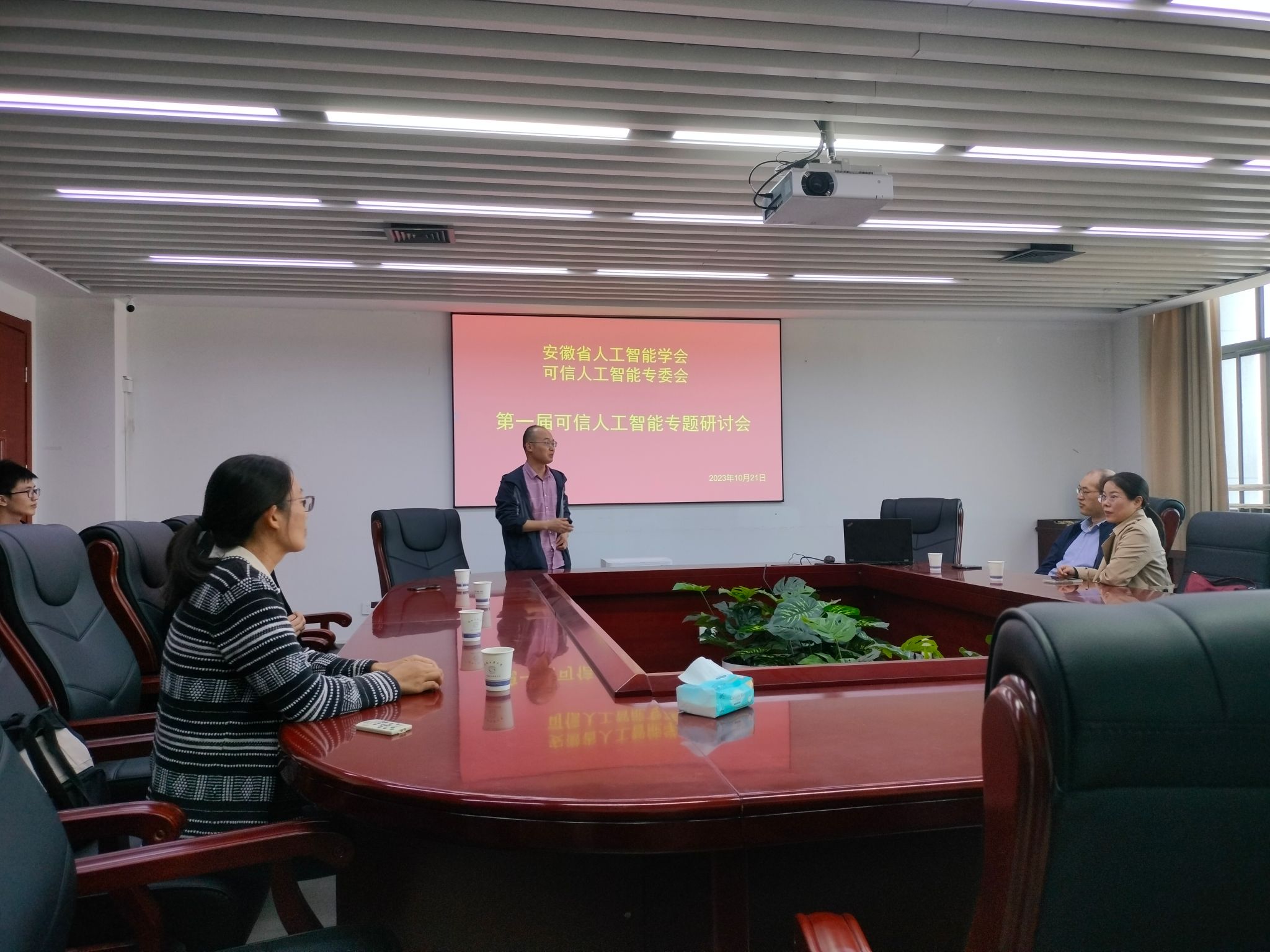
Firstly, the opening speech was delivered by Professor Yu Kui, the Vice Chairman of the Anhui Artificial Intelligence Society. Artificial intelligence has been elevated to the level of major national and local strategies, and artificial intelligence is moving from computational intelligence and perceptual intelligence to the stage of cognitive intelligence.
Subsequently, the conference specially invited Professor Zhang Weiping from the University of Science and Technology of China, Professor Shi Minjia from Anhui University, and Professor Tang Yiming from Hefei University of Technology to give academic reports.
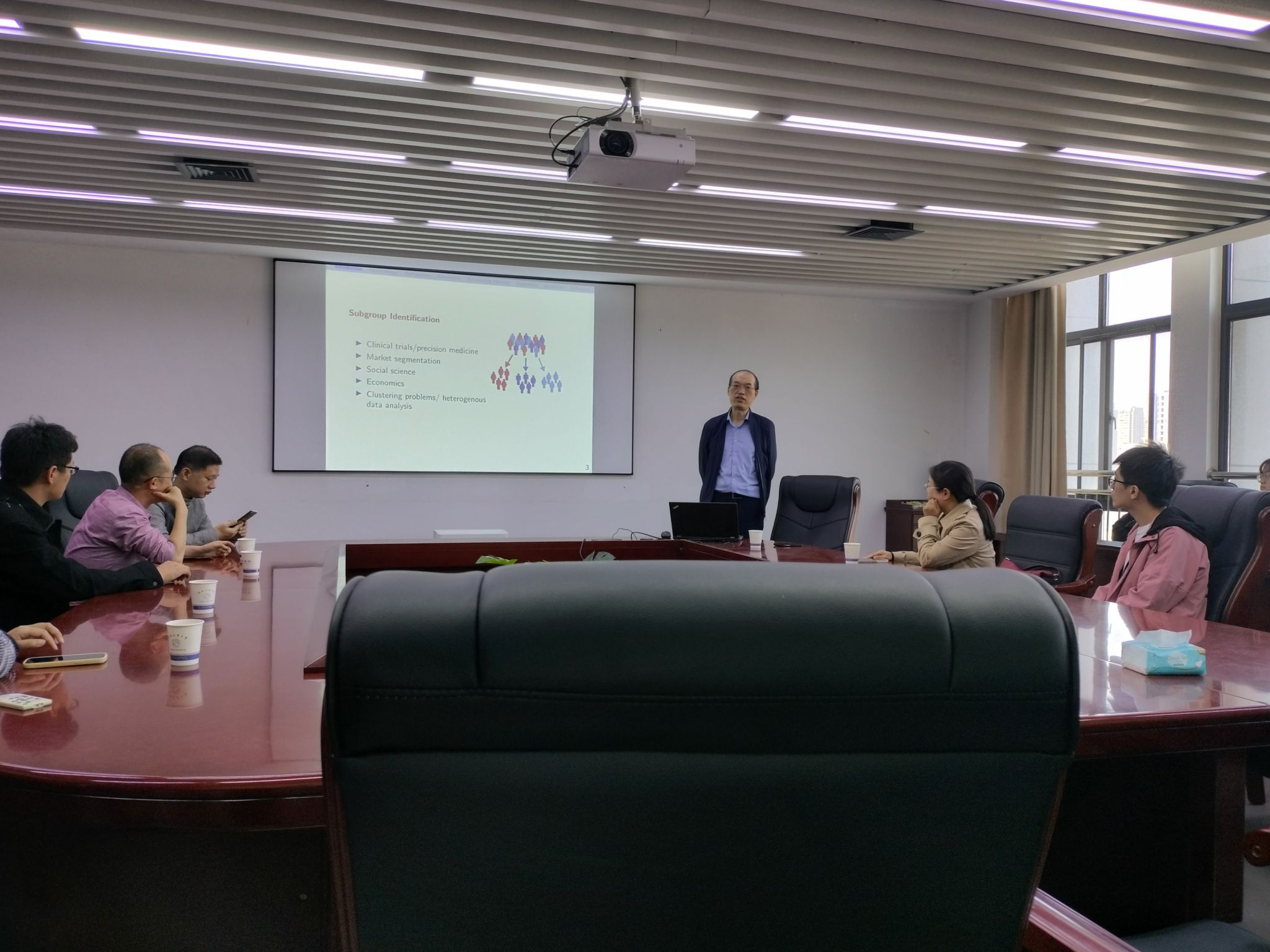
Professor Zhang Weiping's report focused on subgroup identification. With the prevalence of multi-source data, it is necessary to identify subgroups based on multi-source data. Professor Zhang proposed a method based on the working independent pseudo-log-likelihood, and integrated the parameters of each data source into a one-to-one fusion penalty, to achieve simultaneous parameter estimation and subgroup identification. He also derived an algorithm based on the alternating direction multiplier method to implement this method.
In recent years, Professor Zhang has conducted research in statistical inference methods in longitudinal data analysis, Bayesian modeling and computation, network data analysis, etc., and has published more than 60 academic papers, four of which were published in the top four statistical journals. In the past five years, he has led a National Natural Science Foundation project and participated in key projects of the National Natural Science Foundation. He has been awarded the Anhui Provincial Teaching Master, one special prize and two first prizes for provincial teaching achievements in Anhui Province.
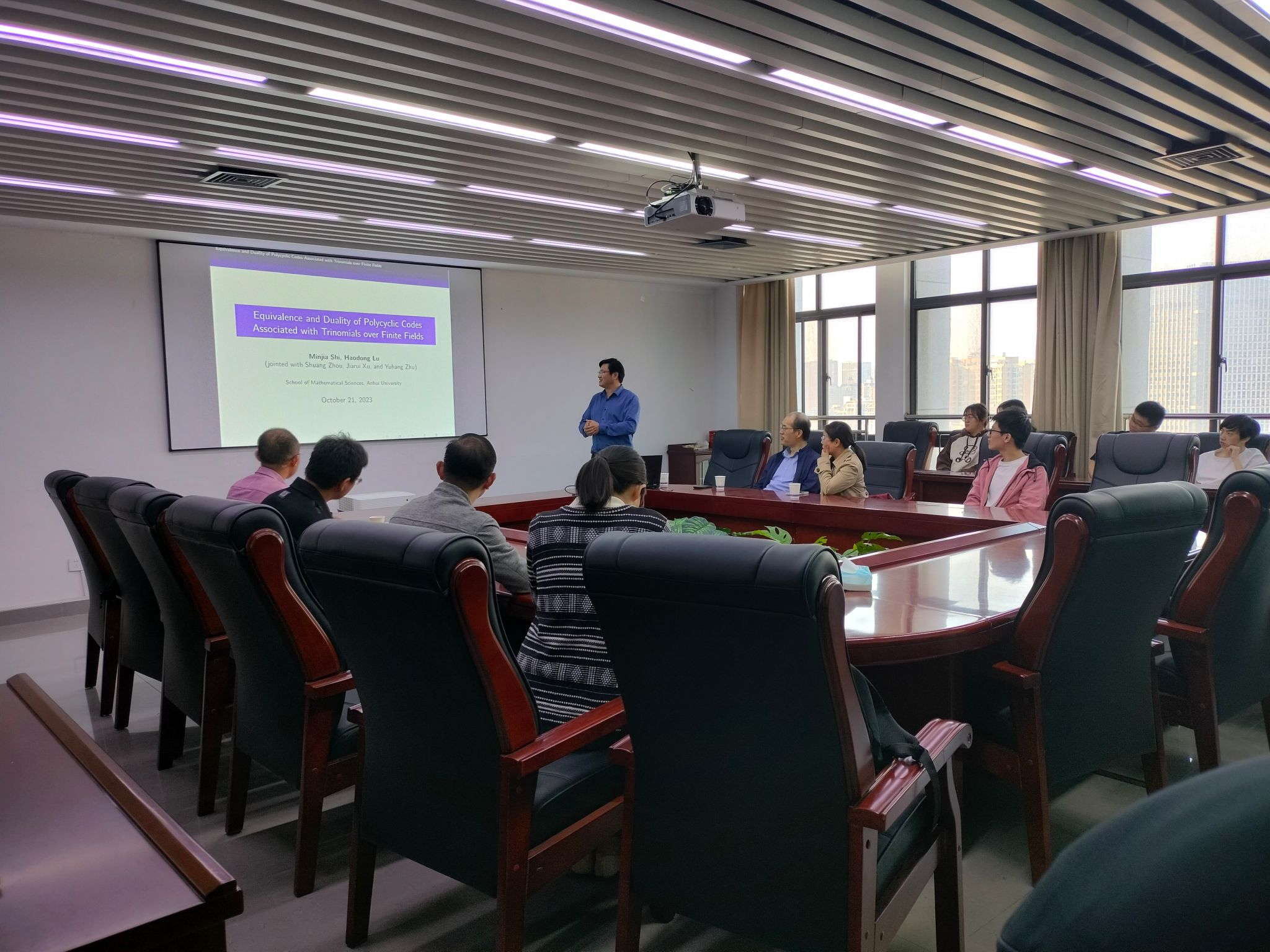
Professor Shi Minjia and her research team have resolved all the conjectures mentioned in the paper by Nuh Aydin and others. Some were proven correct, some were proven correct after modifications, and some were disproven, involving the equivalence and duality of multicycle codes related to trinomials. In addition, Professor Shi Minjia proposed a method for constructing even and self-dual multicycle codes and introduced self-orthogonal and dual-containing multicycle codes on F2.
Professor Shi Minjia has been selected as one of the top 2% of global scientists on the "Annual Impact" list for three consecutive years from 2020 to 2022, and is the associate editor of the SCI journal JAMC. She has presided over 4 National Natural Science Foundation projects, multiple provincial and ministerial key projects such as Anhui Province Outstanding Youth, and published more than 120 SCI papers as the first author/corresponding author in international authoritative journals. Her research results have been included in the "World Concise Encyclopedia of Coding Theory" and ESI highly cited papers.
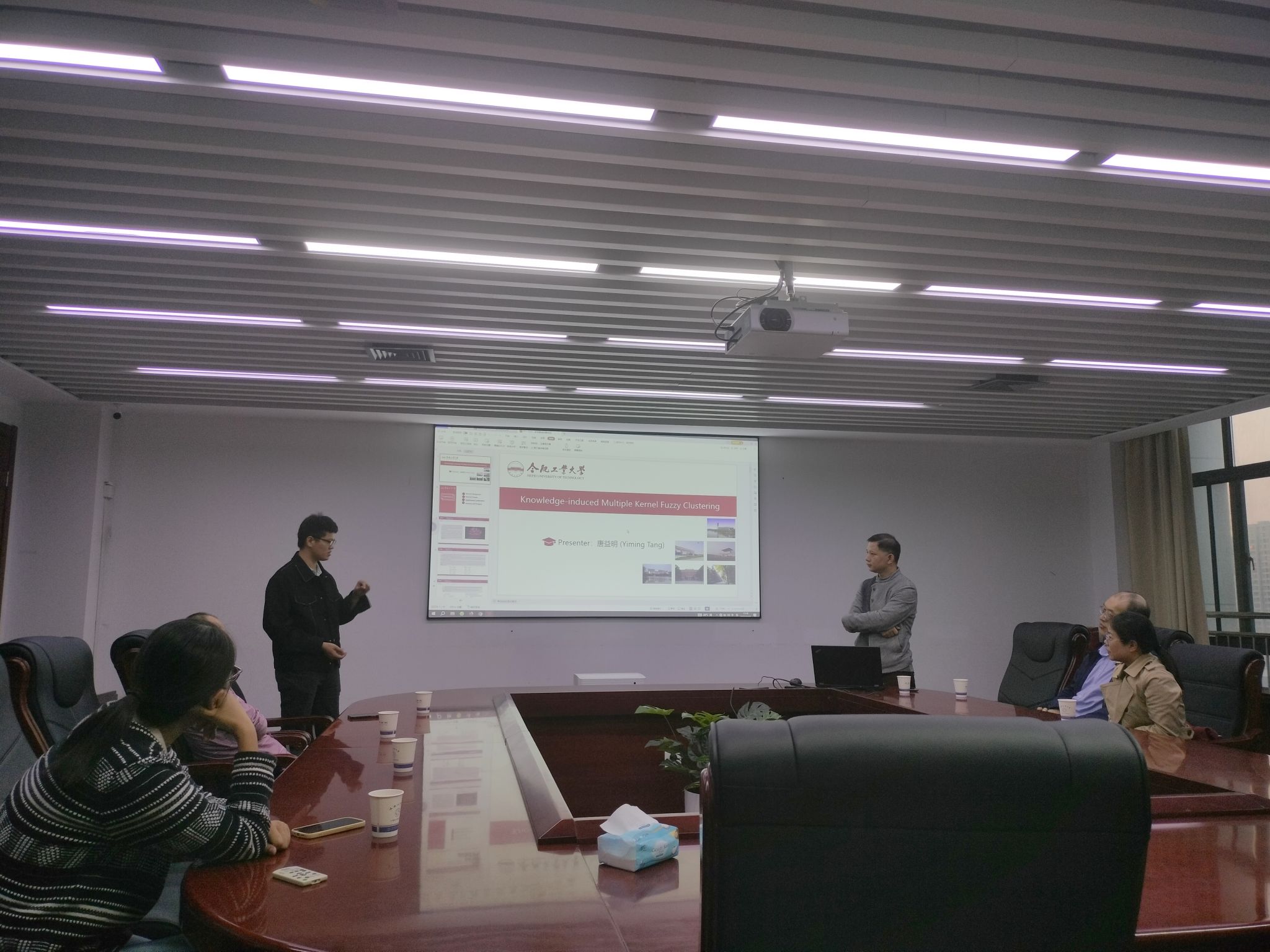
Professor Tang Yiming discussed the main challenges and open issues currently faced in clustering research, introduced the characteristics of various clustering algorithms, and introduced knowledge-driven and data-driven fuzzy clustering methods. Professor Tang Yiming proposed a knowledge-induced multi-kernel fuzzy clustering algorithm, which provides initial clustering centers through a knowledge extraction method based on relative density, combined with a multi-kernel mapping mechanism, thus obtaining better clustering results.
Professor Tang Yiming's main research areas involve clustering theory, collaborative computing, and fuzzy inference, serving in affective computing, image processing, granular computing, etc., and has published more than 90 papers. He has obtained 5 national authorized invention patents and 12 national software copyright registrations. He has presided over more than 10 scientific research projects, including the National Natural Science Foundation project (3 items), the China Postdoctoral Science Foundation special support project, and participated in more than 20 scientific research projects such as the national key R&D project, the National Natural Science Foundation key project, and the 863 project.
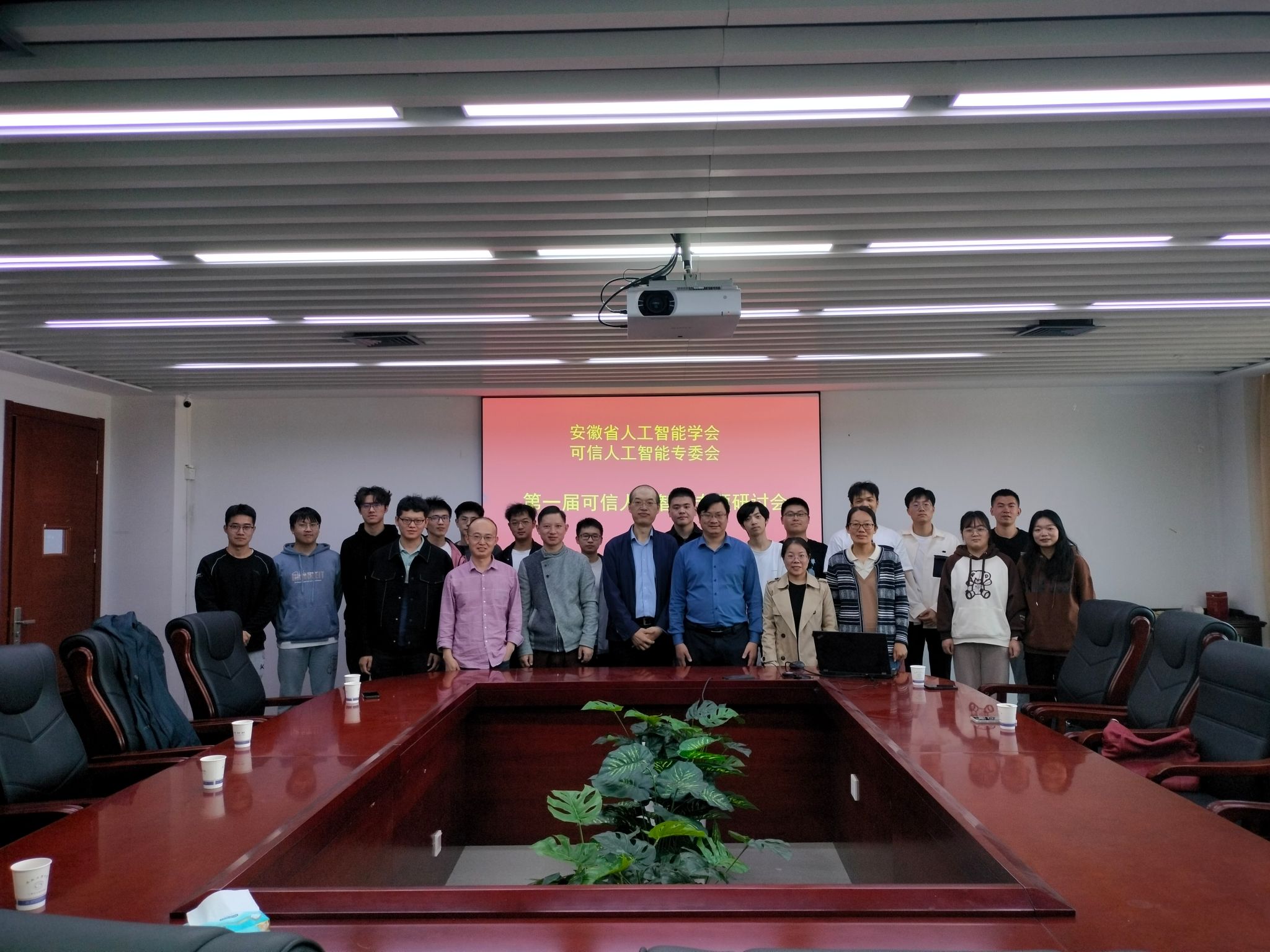
The teachers and students in attendance had a lively discussion on the issues related to the reports. This conference provided an academic exchange platform for the research and development of trusted artificial intelligence related science and technology, and provided important inspiration and reference for our faculty and students to engage in related research work.
 TOP
TOP